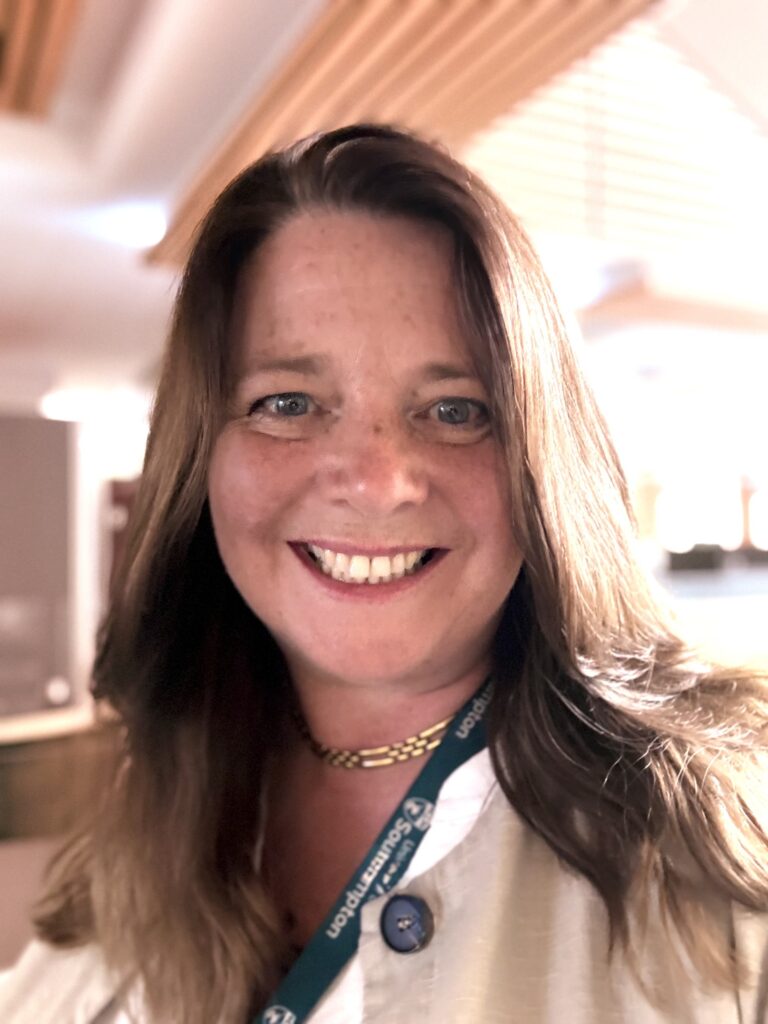Sign-up here to receive the monthly iED bulletin
Sign-up here to receive the monthly iED bulletin

Sian Campbell is Strategic Lead – People and Place, and a Senior Enterprise Fellow at the University of Southampton Business School. She is the developer and lead for Make Your Place, a sustainable place-based enterprise challenge for schools, colleges and organisations across Hampshire and beyond.
Having previously worked for South East Employers, Hampshire County Council and CSR Partnership, Sian also has a strong consultancy background in economic development and regeneration and has operated extensively with senior executives and politicians as a mentor and facilitator to deliver local, regional and national change. She became an iED member in 2003 whilst working in the private sector.
“I’ve dipped in and dipped out of the iED over the years as my career and family circumstances changed, but the reason I joined initially was I took a job as a Senior Economic Development Consultant in Birmingham and did that from a standing start,” Sian recalled. “I studied psychology at undergraduate level, did an MPA (Master of Public Administration), and later completed a Master’s in Information Technology so had no experience of economic development. However, applying my research and data analytical skills in an economic development regeneration consultancy was something I loved. Economic development is a perfect breeding ground for learning and development as it is so interdisciplinary, and I was able to use all the skills I had acquired across my education.”
Having moved into Higher Education in 2013, Sian spoke about how iED membership has supported her specifically within the university sector.
She explained: “Where academia is traditionally very narrow, and deep and focused, my interests are broad, varied, and somewhat magpie-like and I enjoy drawing insights from different disciplines. The iED provides the perfect platform for this kind of interdisciplinary engagement. Being a member brings lots of opportunities for knowledge sharing and collaborative working. It gives me access to the real world, providing links to policy and practice at a local, regional, and national level, and that is particularly important since joining a Russell Group institution, which has a global outlook. Membership has supported the cross-sector collaborations I have with local authorities, our work with the SME sector – a key driver of economic development, and now our increasing institutional focus on civic engagement.”
Through individual membership, Sian has benefited from a wide range of iED support over the past two decades. “One of the best CPD sessions I have ever done was through the iED, and I engaged in quite a lot of virtual CPD sessions during lockdown”, she said. “These are always useful for finding out what is happening on the ground in local authorities and the challenges facing different areas. Learning about the localism approach informs a lot of my work. We were thrilled to be shortlisted for the iED Social Value Champion Annual Award in 2024 for Make Your Place – we got some nice publicity out and we had a brilliant night attending the awards. Bulletin is really useful, and it is all about keeping up to date professionally and being in the know about what is going on because very often things like that spark ideas, or, when I am talking to my students and other groups as part of my own work, I can bring in relevant up-to-date practice that is happening on the ground now rather than a few years ago.”
Recent insights include How Universities Can Help Drive Local and Regional Economies, which is aimed at economic development practitioners, shares best practice and makes a series of recommendations to government to deliver the growth and innovation agendas that took further shape in the Spending Review and Industrial Strategy White Paper.
Sian commented: “I would recommend iED membership to other universities for the following reasons. Firstly, professional recognition for all those people who are working in the various fields. Gathering those people and making them aware that what they are doing is also economic development; so you will have psychologists, sociologists, you will have people working in policy, political science and economics. Universities naturally lean towards silo working because people naturally work deep and narrow, so getting people to understand, first of all, that what they are doing can also be part of the economic development landscape.
“Secondly, networking opportunities are incredibly valuable, particularly connecting people working in economic development fields that we may not otherwise encounter. Thirdly, career development. The learning I gain is important, but what is especially impactful is being able to share with students is the real world insights directly from the coalface, from people who are actively shaping the field. We also benefit through the iED’s resources and advocacy – having the university voice heard which, in turn, supports our knowledge exchange and enhances our impact.”
Case study developed: August 2025